Introduction
In the world of business competition knowing a companys real value goes beyond its physical assets. Goodwill. An intangible but priceless asset. Is crucial in determining a companys value. It includes factors like brand reputation, customer trust and unique technologies. Goodwill represents the amount a buyer is willing to spend expecting future advantages, from these intangible aspects.
Nvidias strong reputation and high market value showcase how positive perception can boost a companys image significantly in the business world today as the global intangible worth is projected to reach $61 trillion by 2023 Stay tuned as we explore the complexities of goodwill; its forms ways of computing its value its significance in appraising businesses tax related details and the vital role of thorough documentation, for smooth transactions and prosperous business operations
What is Goodwill in Business?
In the world of business dealings lies a concept known as goodwill. A term used to describe the assets that go beyond mere physical possessions and debts in determining an organization's overall worth. These intangible assets encompass factors such as brand reputation and customer loyalty along with having a workforce and owning exclusive technology. For instance; Nvidia's leading position in areas, like workplace culture and vision shines through its Reputation Quotient (RQ) score of 81; demonstrating just how much a strong reputation can enhance an organization's worth. The idea of positive reputation essentially indicates the sum a buyer is prepared to spend on a business recognizing that these non-physical elements could result in higher earnings in the future. According to the Brand Finance Global Intangible Finance Tracker report, the global intangible worth has grown by 8%, reaching USD 61.. Trillion by 2023. This highlights the increasing significance of assets in evaluating company value.
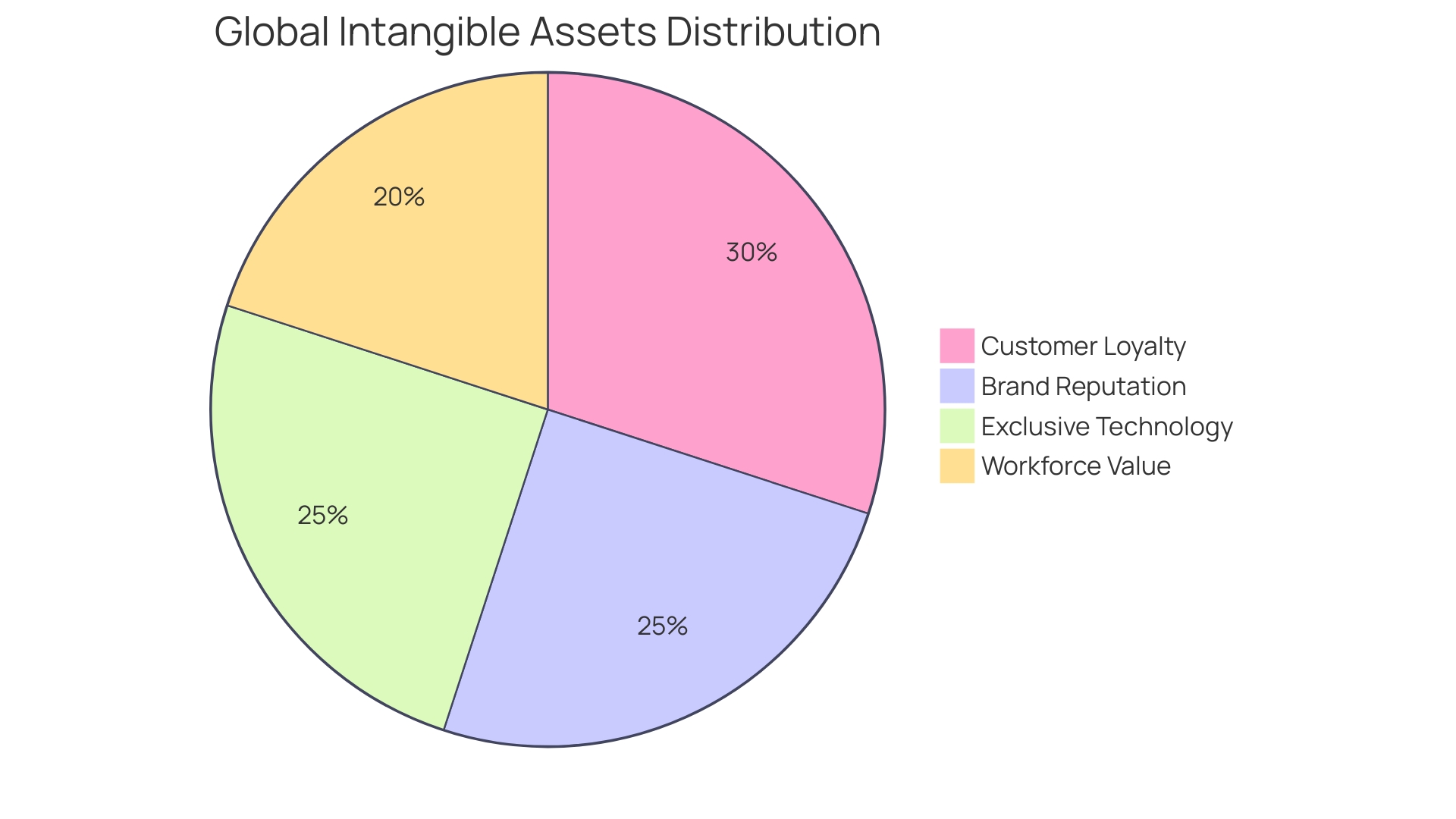
Types of Goodwill: Personal vs. Business Goodwill
In the realm of commercial transactions, there are two categories of positive reputation to consider. Personal reputation and business reputation. Personal favor is closely linked to the owners or key staff members of a company. Stems from their personal connections and standing in the community. This type of support relies heavily on these individuals being actively involved. Can have a big impact on how much the company is worth. On the hand, goodwill is more about the reputation and worth associated with the enterprise itself and continues even when ownership changes hands. Customer loyalty and brand recognition contribute to this essential element of operations that remains valuable over time despite changes in circumstances. It is important to differentiate between these elements for an assessment when selling a company to ensure both the individual efforts and long term qualities are duly acknowledged. For example; According to an article, in the Harvard Business Law Review embracing these distinctions aids in making informed choices during financial reporting and transactions which ultimately results in more precise and equitable valuations.
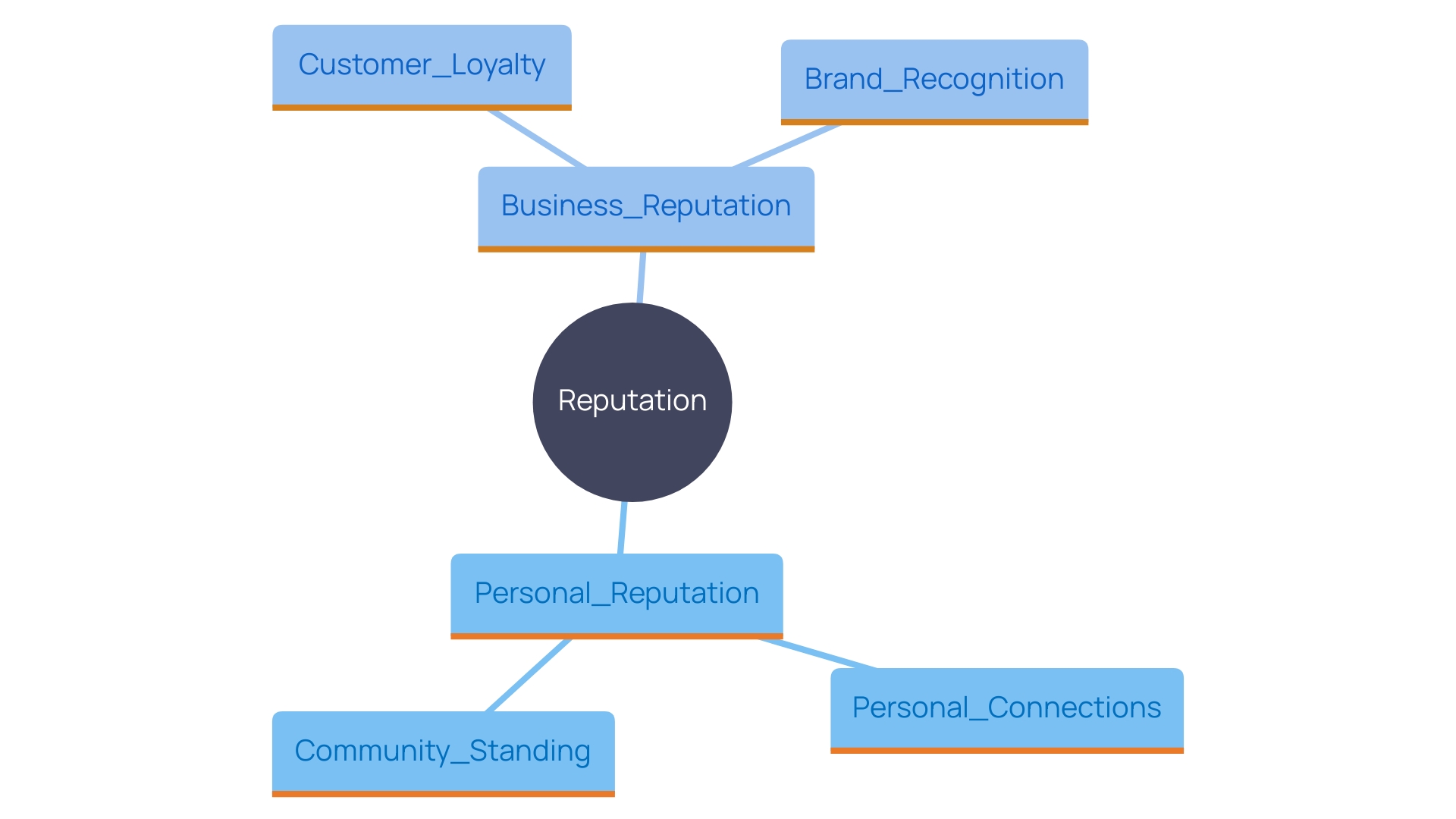
Calculating Goodwill in Business Transactions
In the realm of commercial agreements and exchanges, assessing value is no easy feat—it's a task that demands more than merely analyzing figures on a spreadsheet! It explores understanding the difference between what it costs to acquire a business and the true market worth of its assets like equipment and inventory alongside those intangible treasures, like patents and trademarks.
In order to determine an estimation of goodwill value for a company it is crucial to conduct a thorough examination of financial records customer databases and current market trends One key aspect involves assessing the company's standing in the market taking into account elements such as brand reputation customer loyalty and market reach This assessment can offer valuable insights into the true worth of the company Experts emphasize that a solid market position frequently indicates a strong competitive edge which is vital, in assessing the companys overall value
Furthermore financial experts stress the significance of seeking expert guidance and conducting an assessment of individual circumstances. Both investors and entrepreneurs should consider various factors such as the organization's growth trajectory and the durability of its competitive edge in order to make decisions.
During talks within the industry facilitated by the International Accounting Standards Board (IASD) there has been an increasing focus on enhancing the quality of information that companies disclose regarding acquisitions. This entails evaluating the performance of these acquisitions in relation to their projections—a crucial aspect, in gauging the effectiveness of the investment.
'In scenarios that occur in commercial transactions and agreements led by professionals like Chris Voss exemplify the intricate nature and strategic planning required when selling an enterprise.'. Voss tactics built on his background, in critical negotiations emphasize the significance of thorough groundwork and grasping the multitude of factors affecting the worth of an enterprise.
In essence determining goodwill involves a mix of financial assessment understanding the market dynamics and engaging in strategic discussions. Considering these factors assists owners in ensuring an accurate evaluation, in negotiation situations.
Importance of Goodwill in Business Valuation
Possessing a reputation is a crucial factor in assessing the worth of a company during a sale process. Purchasers tend to prefer enterprises with a reputation because it suggests potential for steady revenue and a solid standing in the market. Determining the worth of intangible assets precisely enables sellers to establish a price and assists buyers in grasping the true significance of the enterprise, for an equitable transaction. Just picture how much clearer your negotiations would be if you could truly see things from the sides point of view. Understanding the value of this perspective is crucial; it transforms the selling of a business into more than just a monetary exchange but rather an emotionally impactful and life altering moment for all involved parties. With a shared understanding of each others perspectives and goals, in mind the chances of finalizing the deal with success are significantly higher. In the face of obstacles the collaborative efforts can lead to a positive result for everyone involved.
Taxation of Goodwill in Business Sales
The taxation of intangible assets can be quite complex. Depends on how it is categorized during a sale process. The sale of intangible assets is usually viewed as a capital asset. Frequently results in capital gains tax responsibilities that become payable once the earnings appear. For instance, in situations where intangible assets are sold for a profit, the seller must handle the tax payment to the IRS only after the transaction has been completed. Nevertheless, the tax consequences can vary greatly depending on whether the intangible assets are recognized as personal or associated with commercial activities.
It's important to grasp these differences to steer clear of any obligations and responsibilities that may arise unexpectedly. In scenarios individuals can tactically organize their financial matters in a way that reduces their tax burdens significantly. For example, if an individual possesses favorable sentiment on a foundation, this could lead to significant tax savings when transferring ownership. A specific instance involved a customer who managed to save more than $1 million in taxes by meticulously strategizing and taking possession of the intangible assets individually.
Along with that point discussed earlier regarding the IRS providing treatment to some sales such as qualified small enterprise stock where you can evade paying taxes on gains exceeding $10 million in specific situations? This highlights how crucial it is to seek advice, from tax experts to deal with the intricacies and make the most of your situation.
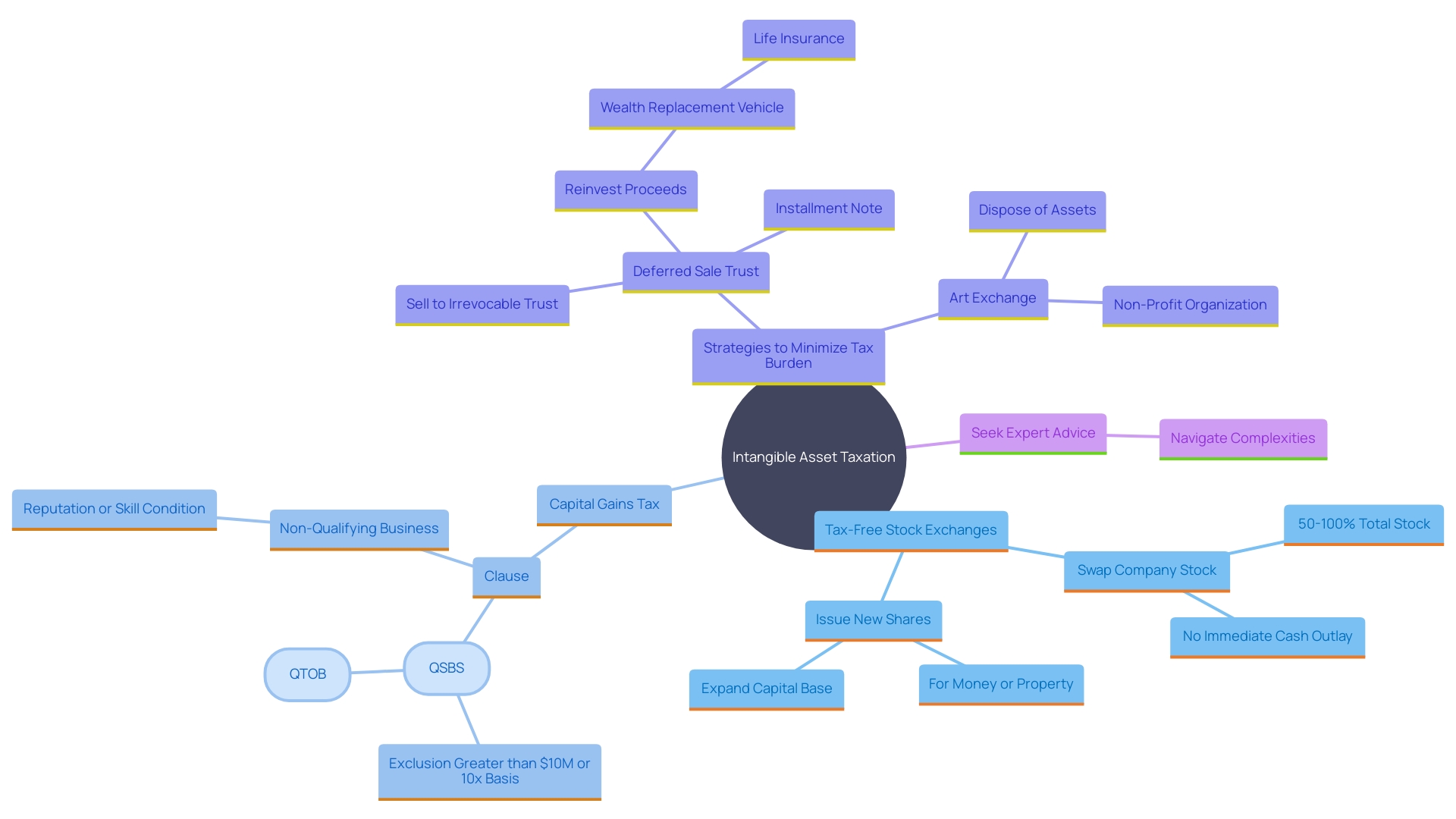
Valuation Methods for Goodwill
Evaluating the value of reputation in a commercial exchange necessitates contemplating approaches that offer distinct viewpoints on the issue. The income approach centers on predicting profits directly linked to goodwill. This technique is crucial for grasping the sustained success of an enterprise particularly when evaluating its market standing and competitive edge. For instance, a technology firm, with clients and advanced innovations, could generate greater future profits, emphasizing the importance of this approach.
The market strategy entails examining the enterprise by contrasting it with firms that have been recently sold in actual market dealings to assess its worth swiftly and precisely. By looking at how these comparable companies doing in terms of market share and growth trajectory can help shed light on where the business stands in its industry and provide a solid reference point, for valuation purposes.
Ultimately, the asset based strategy analyzes the market worth of identifiable assets and liabilities. This technique is essential for comprehending the value of a company while excluding goodwill. It frequently requires an assessment of intellectual property (IP), like patents and trademarks which can greatly impact investor trust and competitive stance in the market.
By combining these methods effectively provides a thorough evaluation process for the task at hand. Each method reveals aspects of the enterprise that when combined provide a comprehensive and accurate assessment. Experts highlight the significance of valuation, as neglecting it might lead to selling the enterprise below its true worth or overvaluing it, which could dissuade prospective buyers. Therefore, selecting and utilizing these valuation techniques thoughtfully is crucial to ensure the favorable outcome when selling an enterprise.
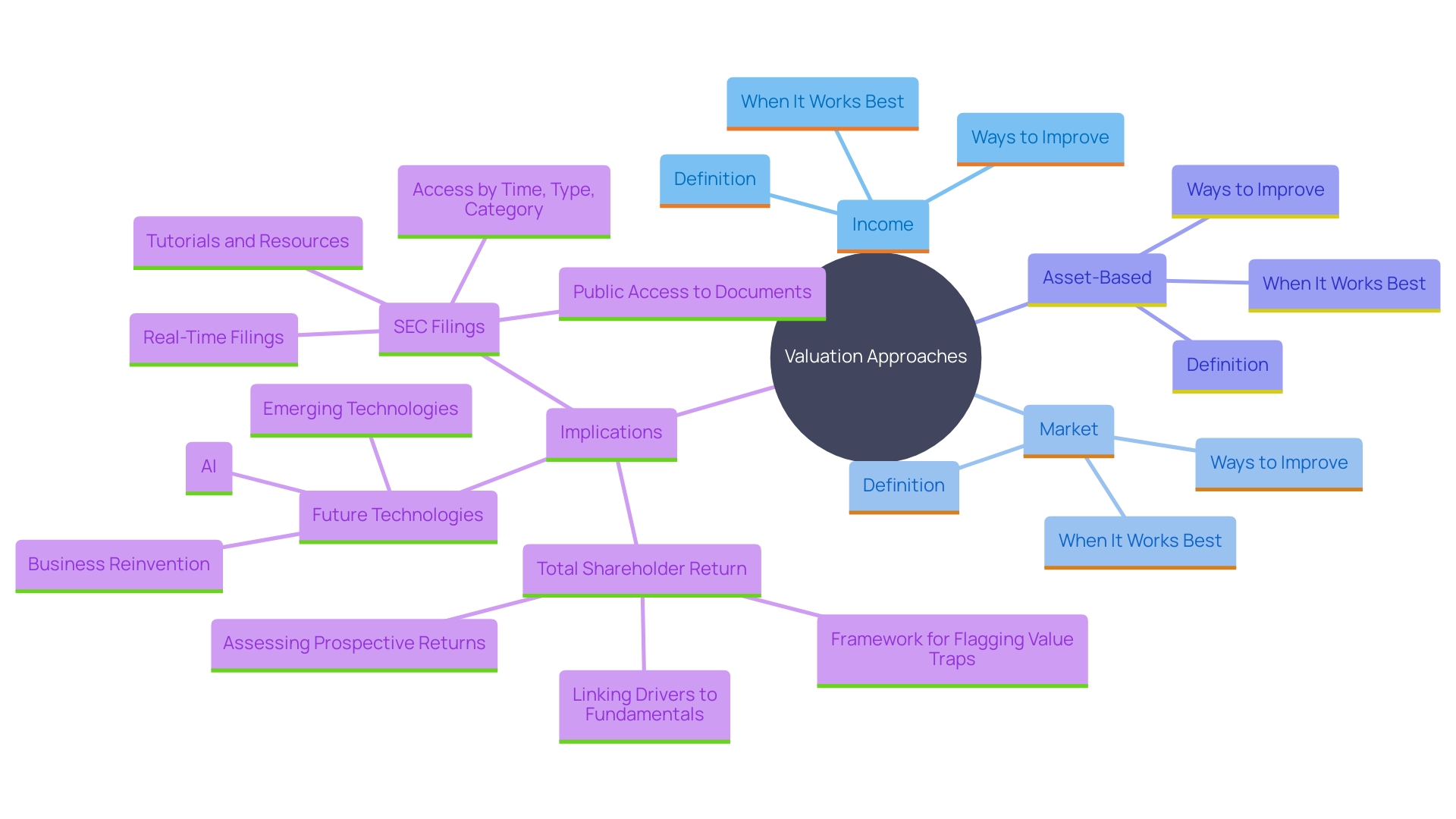
Record Keeping for Tax Purposes Related to Goodwill
Keeping thorough records regarding goodwill is crucial for tax purposes. To achieve this goal one must document the methods used for valuation the statements involved and any agreements reached during the transaction. The Internal Revenue Code grants the IRS a three year window for reviewing tax filings. This duration may be extended to six years or longer in instances of major income omission or fraudulent behavior. As a result maintaining records not only ensures adherence to tax laws but also furnishes strong support, for audits or disagreements. By keeping records in place businesses can safeguard the interests of buyers and sellers alike fostering a seamless transaction process and reducing the risk of legal disputes.
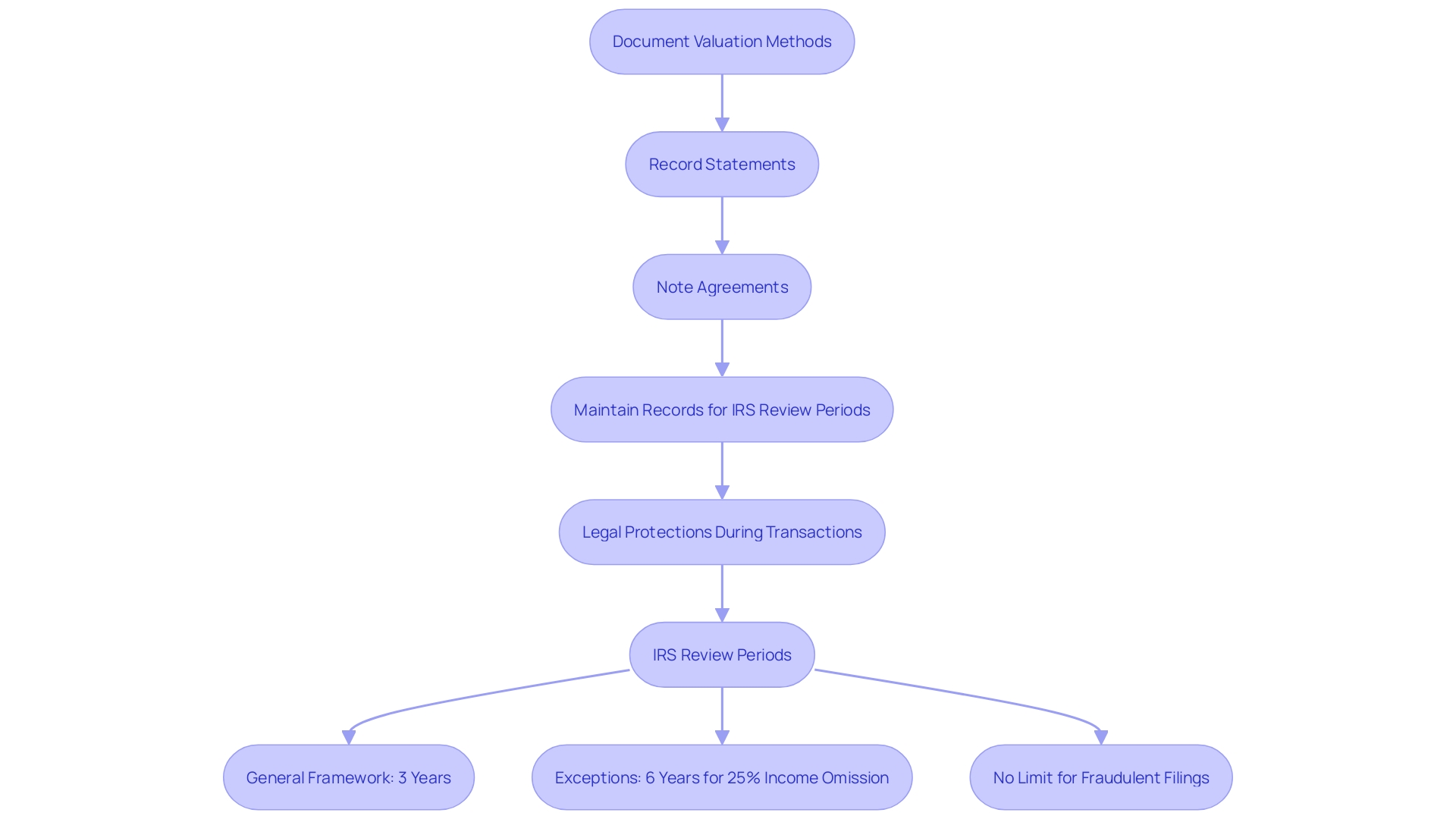
Conclusion
The study of goodwill in the business world has revealed its impact on assessing a companys value beyond tangible assets. It is crucial to comprehend both corporate goodwill as it underscores the significance of brand image and customer devotion, in elevating overall value. With the growing importance of assets worldwide This understanding becomes progressively crucial for companies striving to excel in competitive marketplaces.
Determining goodwill involves reviewing financial documents along, with studying market trends and strategic viewpoints thoroughly to gain a comprehensive understanding of its value for businesses to make informed decisions during negotiations and transactions successfully.
In addition to that point is the intricacy involved in taxing goodwill which emphasizes the need, for financial planning.It's crucial to grasp how goodwill classification can result in tax benefits reiterating the significance of consulting with professionals.By keeping records businesses not just adhere to tax laws but also safeguard their concerns during reviews and disagreements.
To sum it up concisely; understanding the importance of goodwill and its different aspects helps companies handle valuations and deals efficiently. By embracing these perspectives businesses can cultivate a culture of informed choices, which in turn leads to sustainable progress and achievement in the constantly changing business environment.




